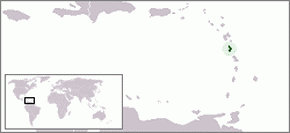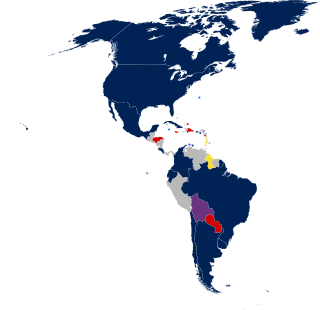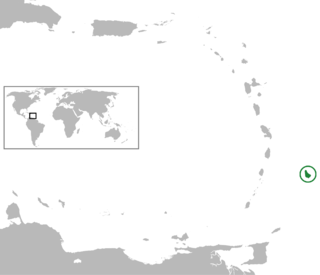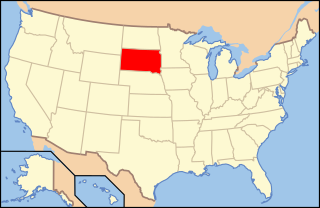
Rights affecting lesbian, gay, bisexual, and transgender (LGBTQ) people vary greatly by country or jurisdiction—encompassing everything from the legal recognition of same-sex marriage to the death penalty for homosexuality.

The rights of lesbian, gay, bisexual, and transgender (LGBTQ) people in the United Kingdom of Great Britain and Northern Ireland have developed significantly over time. Today, lesbian, gay and bisexual rights are considered to be advanced by international standards.

Lesbian, gay, bisexual, and transgender (LGBTQ) rights in the Netherlands are among the most advanced in the world. Same-sex sexual activity was legalized in 1811 after France invaded the country and installed the Napoleonic Code, erasing any remaining sodomy laws. No more sodomy laws were enacted after the country received independence. An age of consent equal with that of heterosexual activity was put in place in 1971. During the late 20th century, awareness surrounding homosexuality grew and society became more tolerant of gay and bisexual people. The changes eventually led to homosexuality's declassification as a mental illness in 1973 and a ban on discrimination based on sexual orientation in the military. The Equal Treatment Act 1994 bans discrimination on account of sexual orientation in employment, housing, public accommodations, and other areas. This was extended in 2019 to include discrimination based on gender identity, gender expression and sex characteristics. After the country began granting same-sex couples registered partnerships benefits in 1998, the Netherlands became the first country in the world to legalize same-sex marriage in 2001. Same-sex joint and stepchild adoption are also permitted, and lesbian couples can access IVF as well.

Lesbian, gay, bisexual, and transgender (LGBT) rights in the British Crown dependency of the Isle of Man have evolved substantially since the early 2000s. Private and consensual acts of male homosexuality on the island were decriminalised in 1992. LGBTQ rights have been extended and recognised in law since then, such as an equal age of consent (2006), employment protection from discrimination (2006), gender identity recognition (2009), the right to enter into a civil partnership (2011), the right to adopt children (2011) and the right to enter into a civil marriage (2016).

Lesbian, gay, bisexual, and transgender (LGBT) people in Trinidad and Tobago face legal challenges not experienced by non-LGBTQ residents. Households headed by same-sex couples are not eligible for the same rights and benefits as that of opposite-sex couples.

Lesbian, gay, bisexual, and transgender (LGBT) persons in the British Virgin Islands face legal challenges not experienced by non-LGBTQ residents. Same-sex sexual activity has been legal in the British Virgin Islands since 2001.

Lesbian, gay, bisexual, and transgender (LGBT) people in Dominica face legal challenges not experienced by non-LGBTQ residents. Homosexuality has been legal since 2024, when the High Court struck down the country's colonial-era sodomy law. Dominica provides no recognition to same-sex unions, whether in the form of marriage or civil unions, and no law prohibits discrimination on the basis of sexual orientation or gender identity.

Lesbian, gay, bisexual, and transgender (LGBT) people in Guyana face legal and societal challenges not experienced by non-LGBTQ residents. Guyana is the only country in South America, and the only mainland country in the Americas, where homosexual acts, including anal sex and oral sex, are illegal. Cross-dressing was illegal until November 2018, when the statute was struck down by the Caribbean Court of Justice, the court of last resort of Guyana.

Laws governing lesbian, gay, bisexual, and transgender (LGBT) rights are complex and diverse in the Americas, and acceptance of LGBTQ persons varies widely.

Lesbian, gay, bisexual, and transgender (LGBT) rights in Scotland are generally in line with the rest of the United Kingdom, which have evolved extensively over time and are now regarded as some of the most progressive in Europe. In both 2015 and 2016, Scotland was recognised as the "best country in Europe for LGBTI legal equality".

A sodomy law is a law that defines certain sexual acts as crimes. The precise sexual acts meant by the term sodomy are rarely spelled out in the law, but are typically understood and defined by many courts and jurisdictions to include any or all forms of sexual acts that are illegal, illicit, unlawful, unnatural and immoral. Sodomy typically includes anal sex, oral sex, manual sex, and bestiality. In practice, sodomy laws have rarely been enforced to target against sexual activities between individuals of the opposite sex, and have mostly been used to target against sexual activities between individuals of the same sex.

Lesbian, gay, bisexual, and transgender (LGBT) persons in Antigua and Barbuda may face legal challenges not experienced by non-LGBTQ citizens.

Lesbian, gay, bisexual, and transgender (LGBT) people in Barbados do not possess the same legal rights as non-LGBT people. In December 2022, the courts ruled Barbados' laws against buggery and "gross indecency" were unconstitutional and struck them from the Sexual Offences Act. However, there is no recognition of same-sex relationships and only limited legal protections against discrimination.

Lesbian, gay, bisexual, transgender, and queer (LGBTQ) people in the U.S. state of Wyoming may face some legal challenges not experienced by non-LGBTQ residents. Same-sex sexual activity has been legal in Wyoming since 1977, and same-sex marriage was legalized in the state in October 2014. Wyoming statutes do not address discrimination on the basis of sexual orientation and gender identity; however, the U.S. Supreme Court's ruling in Bostock v. Clayton County established that employment discrimination against LGBTQ people is illegal under federal law. In addition, the cities of Jackson, Casper, and Laramie have enacted ordinances outlawing discrimination in housing and public accommodations that cover sexual orientation and gender identity.

Lesbian, gay, bisexual and transgender (LGBT) people in Saint Vincent and the Grenadines face legal challenges not experienced by non-LGBT residents. The Penal Code makes same-sex sexual acts illegal with a punishment up to 10 years in prison, although the law is not enforced. In addition, it outlaws the practice of "buggery", whether homosexual or heterosexual and irrespective of whether the act was consensual. The country's laws also do not address discrimination or harassment on account of sexual orientation or gender identity, nor recognize same-sex unions in any form, whether it be marriage or partnerships. Households headed by same-sex couples are not eligible for any of the same rights given to opposite-sex married couples. In 2024, Saint Vincent and the Grenadines upheld its constitutional ban on same-sex sexual activity within its High Court.

Lesbian, gay, bisexual, transgender, and queer (LGBTQ) people in the U.S. state of South Dakota may face some legal challenges not experienced by non-LGBTQ residents. Same-sex sexual activity is legal in South Dakota, and same-sex marriages have been recognized since June 2015 as a result of Obergefell v. Hodges. State statutes do not address discrimination on account of sexual orientation or gender identity; however, the U.S. Supreme Court's ruling in Bostock v. Clayton County established that employment discrimination against LGBTQ people is illegal under federal law.

In the U.S. Virgin Islands, Lesbian, gay, bisexual, and transgender (LGBT) rights have evolved substantially in recent years. Same-sex sexual activity has been legal since 1985. The region also provides explicit legal protections against discrimination for LGBTQ residents since December 2022. Following the Supreme Court's ruling in Obergefell v. Hodges on June 26, 2015, which found the denial of marriage rights to same-sex couples unconstitutional, same-sex marriage became legal in the islands.
This is a list of notable events in LGBT rights that took place in the 2010s.
The Sexual Offences Act, 1995 is an Act of the Parliament of Antigua and Barbuda. It replaced all previous law on sexual offences, codifying a wide range of offences including rape, "marital sexual assault", sexual intercourse with minors and mentally subnormal people, incest, buggery, bestiality, indecent assault, "serious indecency", procuration, procuring defilement of a person, detention or abduction of a person for sexual purposes, brothel-keeping, and living on the earnings of prostitution.
This is a list of notable events in the history of LGBT rights taking place in the year 2023.


















